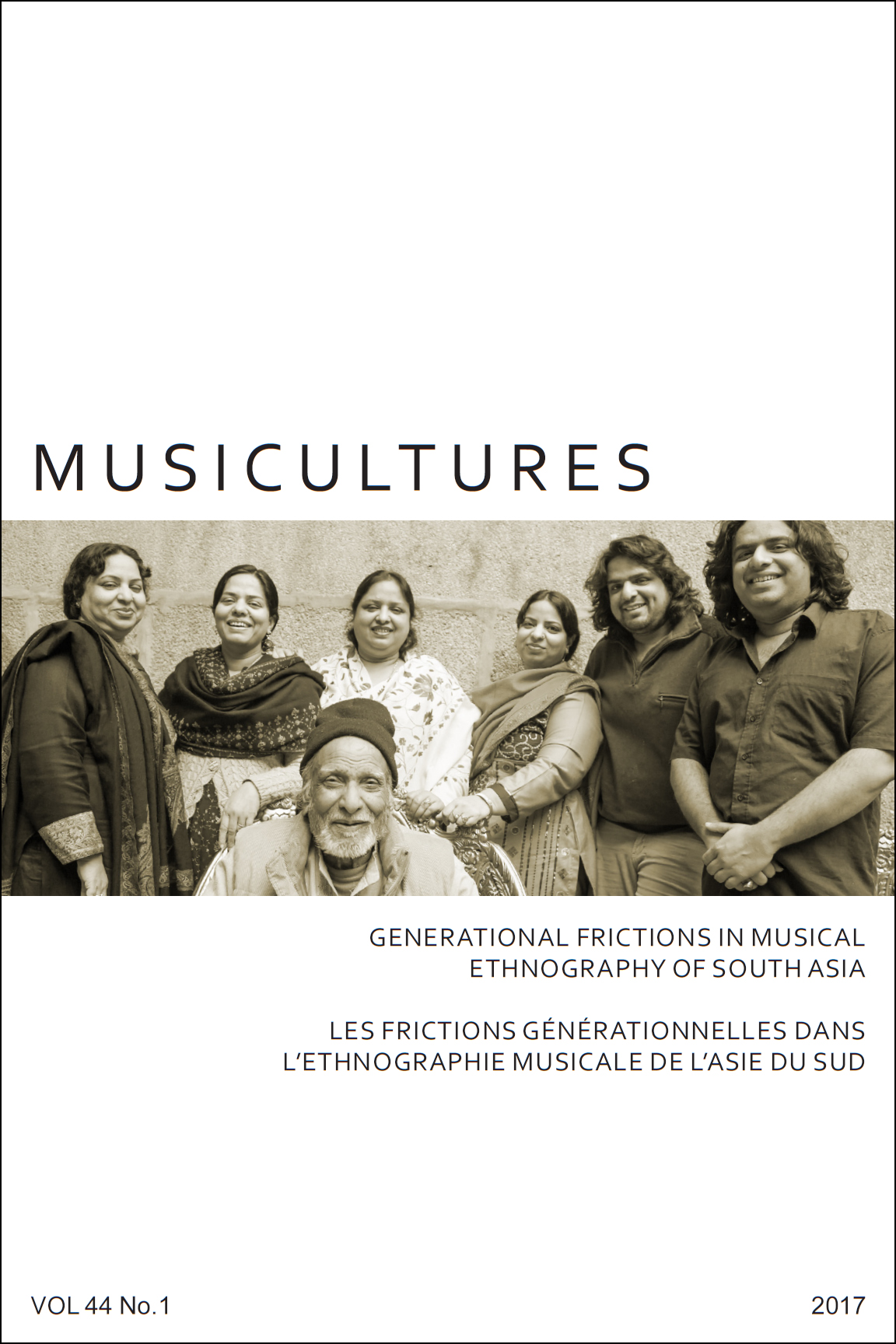Abstract
Abstract: A half century personal overview of my study of Hindustani musicians generally, and my teacher specifically provides the context and explanation for what I aver as the distinctive features of Hindustani music. First, the music practice did not require colonial reconfigurations from the perspective of its hereditary khandani practitioners. Second, for ethnomusicologists, the relationship between the researcher-disciple and consultant-master teacher was uniquely personal and loyal. Accordingly, despite exponentially expanding our understanding of its music practices in the last 50 years, ethnomusicological research in India remains remarkably free of generational friction, other than the necessary traction to learn more.- The author retains copyright over the work.
- The author grants the journal owner (The Canadian Society for Traditional Music / La Société canadienne pour les traditions musicales) an exclusive license to publish the work.
- The author may post a pre-print or post-print version of the work (see definitions below) on a personal website for up to twelve months after the work is published in MUSICultures. After twelve months, the pre-print version must be replaced with the published version.
- The author may deposit the published PDF of the work in a non-commercial online repository twelve months after the work is published in MUSICultures, or any time thereafter.
- Any such deposit must include a link to the work on the MUSICultures website, e.g., https://journals.lib.unb.ca/index.php/MC/article/view/19996
A pre-print is a work-in-progress—a contribution not yet accepted, or perhaps even submitted, to MUSICultures.
A post-print is the version of a contribution after peer review and acceptance by MUSICultures, with revisions completed.
The published version is the PDF file of a contribution as it appears in MUSICultures.
Please note that academia.edu and ResearchGate.com are both for-profit repositories; authors may not deposit the published PDF of the work in these repositories until after the journal’s embargo period.
For permission to reprint or translate material from MUSICultures, please contact Heather Sparling, General Editor of MUSICultures (heather_sparling@cbu.ca).

